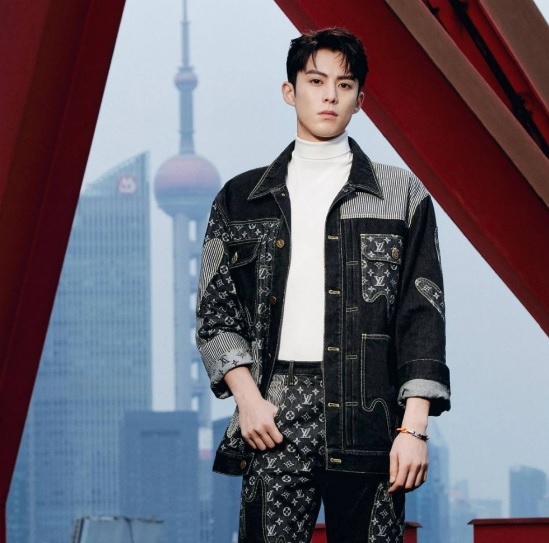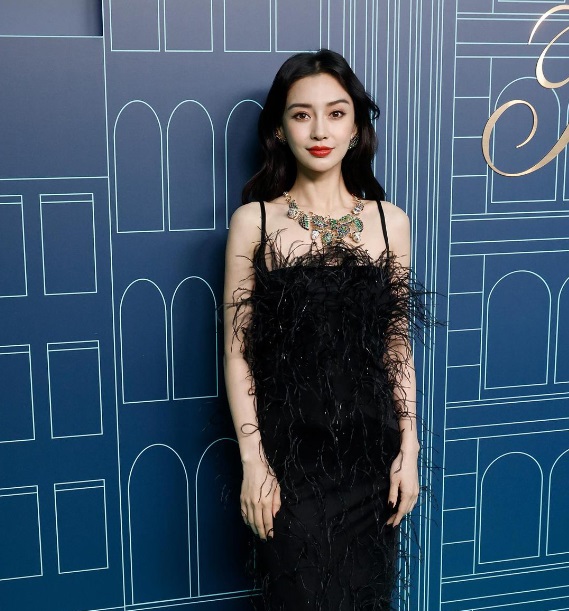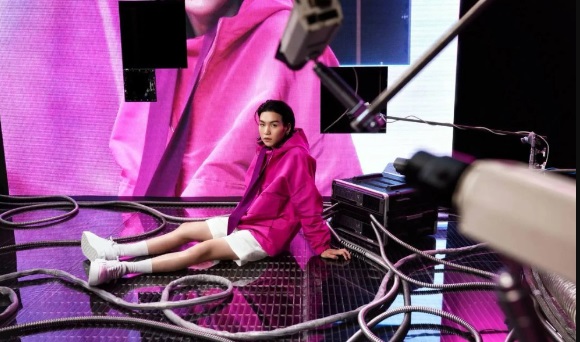In the bustling digital landscape of China, celebrity endorsements have swiftly emerged as a linchpin in brand promotion strategies, playing a pivotal role in amplifying brand presence and forging meaningful connections with consumers. As these endorsements are continually scrutinized by netizens, brands must navigate a multifaceted power dynamic with these stars, keeping pace with the digital evolution.
China’s Celebrity Endorsement: A Nuanced Power Play in the Digital Age
Celebrity endorsements in China aren’t a mere marketing stratagem but a reflection of the country’s immense online population
At fashionchinaagency, with a significant segment active on platforms like Red Weibo and WeChat. The digital terrain provides fertile ground for brands to bolster their visibility through celebrity collaboration, capitalizing on the inherent trust consumers place in their favorite stars.
Louis Vuitton Brand Ambassador Dylan Wang

The magnetism of celebrities in China transcends their professional feats. Their personal lives, too, are under the spotlight, making them more relatable and fostering a deeper bond with consumers.
Given China’s swift post-pandemic economic rebound, it has become an epicenter of interest for global entities, especially in the fashion and beauty domains. The digital sphere, dotted with emerging platforms like Douyin and Bilibili, has introduced a new combat zone for market share.
Angelababy for Tiffany. NYC Flagship Store

The Ascent of KOLs: A Paradigm Shift in Influence
“The omnipresence of social media has redrawn the lines of influence” explain Philip Chen Co-Founder of GMA.
Mobile devices now command audience attention, previously held by television and PCs. In this realm, celebrities and Key Opinion Leaders (KOLs) are now neck and neck, sharing platforms and even strategies. Brands are now in an optimal position to harness both celebrity magnetism and the genuine connection KOLs have with their audience. This symbiosis is evident in high-profile campaigns, such as the recent collaborations between top KOL Li Jiaqi and luxury powerhouses like Valentino and Louis Vuitton.
Brands are now conceptualizing nuanced titles for their endorsers, moving beyond the standard “brand ambassador.” This diversity in representation is a testament to brands’ expanded strategies and is aimed at a more targeted appeal to consumers. Their criteria for collaboration now encompasses both celebrity stature and the purchasing prowess of their followers. The true challenge, however, lies in converting this vast attention into tangible sales.
Read more
Redefining the Idol Economy
Though the idol economy has its challenges, including extreme fandoms and online skirmishes, it is undeniable that young, relatable celebrities remain pivotal for brands, especially as they herald digital innovations. Luxury icons such as Louis Vuitton and Burberry have consistently harnessed these idols, but the narrative is evolving. Brands are now focusing less on superficial aesthetics and more on personifying the authentic traits of these idols, as witnessed in campaigns by Lancôme and Tiffany. The key, as highlighted by experts, lies in harmonizing brand DNA with celebrity authenticity, ensuring resonance with China’s discerning netizens.
Conclusively, for brands operating in China’s complex digital climate, the route to success lies in appreciating the intricate dynamics of celebrity endorsements and embracing the authenticity and uniqueness they bring to the table. Adaptability and strategic collaboration will remain the hallmarks of enduring brand-celebrity partnerships.
Read more
https://in.hellomagazine.com/fashion/gallery/20230615302874/most-stylish-chinese-celebrities/1/

